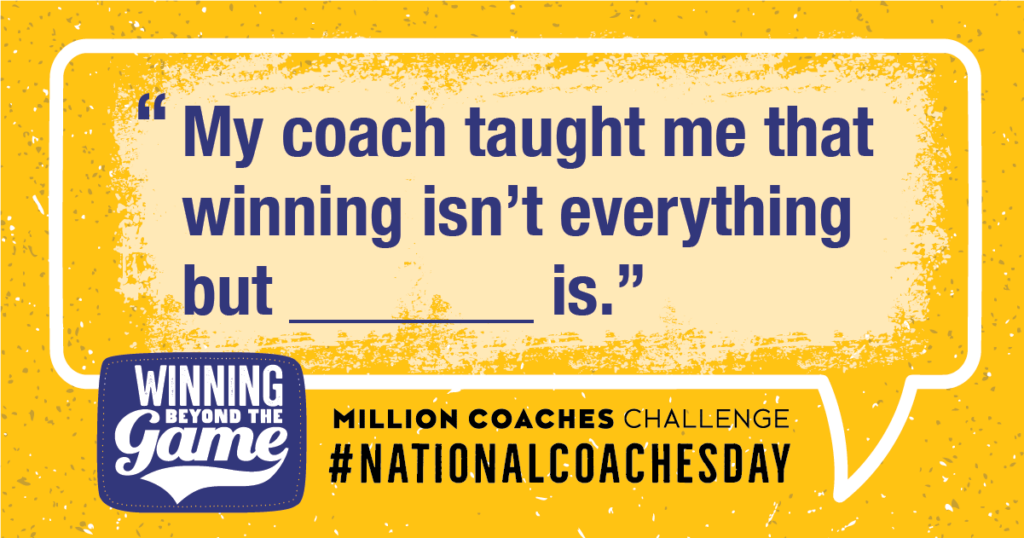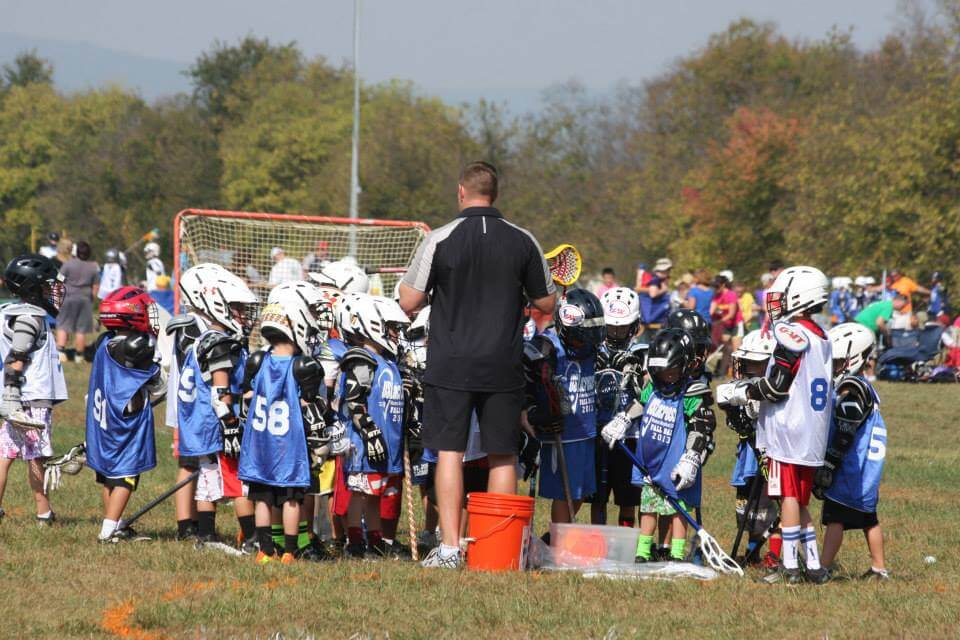In the world of sports, coaches are more than just strategists on the sidelines. They are mentors, role models, and architects of character, whose influence extends far beyond the final whistle. As we reflect on a summer of global sporting events and recent research, it’s clear that the impact of youth-centered coaching reverberates through athletes’ lives, shaping not just their performance, but their values and behavior both on and off the field.’

Sportsmanship in the Spotlight’
The Paris 2024 Olympics and Paralympic Games were marked by numerous inspiring moments of sportsmanship that captured the world’s attention. One particularly notable example was Canadian gymnast Ellie Black, who was honored with the Paris 2024 Fair Play Award for her exceptional display of sportsmanship during an emotional interaction with a French gymnast. Another is when Simone Biles and Jordan Chiles bowed to Rebeca Andrade after winning Gold in the floor routine. When asked why, they explained it was ‘to show good sportsmanship’. Examples like this serve as powerful reminders of the values instilled by coaches who prioritize character development alongside athletic achievement.’
Initiatives led by partners of the Million Coaches Challenge (MCC) have played a crucial role in promoting these values. For example, the ‘U.S. Olympic & Paralympic Committee’s (USOPC) Connection Based Coaching’ online course helps coaches at all levels to better connect with their athletes, focusing on crucial social and emotional skills for fostering a positive sports environment.’
The spirit of sportsmanship was equally evident among younger athletes at the 2024 Little League World Series. Japan’s team was recognized with the ‘Jack Losch Little League Baseball® World Series Team Sportsmanship Award’. Another touching moment occurred during the championship game, where the Florida team’s gracious response to Chinese Taipei’s game-ending error demonstrated the true essence of sportsmanship. These instances exemplify the positive impact of programs like ‘Little League’s Diamond Leader Program’, highlighting how early positive coaching experiences can shape an athlete’s character for years to come.’
The Critical Role of Coaches: Insights from the Research’
We recognize the need for coaching that provides positive and safe sports experiences in line with parental expectations and youth developmental needs. A ‘Harris Poll survey’ conducted in 2024 found that while most parents consider sports crucial for teaching life skills, many feel there is a lack of quality coaches. The ‘2022 National Coach Survey’ by MCC partners Aspen Institute’s Sports & Society Program and LiFESports at the Ohio State University, revealed that nearly half of school-based coaches lack training in trauma-informed practices. However, despite this, most coaches believe they have a positive impact on their athletes’ life skills and leadership abilities. This emphasizes the importance of well-trained coaches who focus on character development, safety, and overall growth to promote sportsmanship among young athletes.’
The Science of Influence: Coach Training Makes a Difference’
Our recent ‘MCC Impact Statement’ reveals that 88% of coaches felt that training improved their coaching abilities. A recent article in Taylor & Francis Online, titled &”‘School Coaches in the United States: Insights from the National Coach Survey’,” provides valuable perspectives on the state of school sports coaching. This article, featuring contributions from MCC partners Ohio State’s LiFESports program and Aspen’s Project Play, delves into the challenges and needs of school coaches today. ‘
- The article identifies significant gaps in training, particularly in areas such as:’
- Trauma-informed practice’
- Working with socially vulnerable youth’
- Emotional regulation’
- Working with caregivers’
- Safety on social media’
This underscores the need for comprehensive coach education programs that go beyond sport-specific skills to include holistic athlete development. The survey uncovers important trends, including the need for more comprehensive training in social and emotional learning. It also emphasizes the impact of coaching on youth development and underscores the importance of providing coaches with adequate resources and training to enhance their effectiveness.’
‘For coaches who have undergone the ‘Coach-Mentor Training from The U.S. Soccer Foundation’, our recent ‘MCC Impact report’ revealed that coaches agree their mentorship skills improved. Here’s an example from one coach:’
“A player from the opposition made a mistake that cost their team a goal. I encouraged the player from the other team to cheer up and keep trying his best. When my players questioned why I was coaching the player from the other team, I took that opportunity to chat with them about empathy after the game and how sportsmanship towards teammates and opponents goes a long way for our mental wellness.”
It’s experiences like this that reaffirm what we know: We can and should use coach training to improve the way youth athletes experience sport. ‘
Building a Youth-Centered Sports Culture from the Ground Up’
Focusing on the development and support of coaches can help create a more youth-centered, respectful, and inclusive sports culture. Well-trained coaches have an impact that goes beyond athletic performance. They are better able to support mental health and facilitate the overall development of their athletes. However, ‘we know’ coaches face significant challenges. 82% feel that they are not fairly compensated for their efforts, 77% report inadequate equipment and funding for their teams, and 74% cite a lack of administrative support. These resource gaps not only hinder coaches’ effectiveness but also make it difficult to attract and retain high-quality mentors. We must address these issues—it’s crucial for creating an environment where coaches can fully dedicate themselves to nurturing sportsmanlike behavior and character development in young athletes.’
The Path Forward: Million Coaches Challenge’s Approach’
One significant step in creating a comprehensive approach is the recently announced effort by the State of California. Through the Governor Council’s ‘Move Your Body, Calm Your Mind’ campaign, MCC partners ‘Positive Coaching Alliance’ (PCA) and the ‘Center for Healing and Justice through Sport’ (CHJS) will spearhead a statewide effort to instill the principles of positive youth development, social-emotional learning, healing-centered practices, and culturally responsive coaching in youth coaches. Coaches will learn a range of youth-centered strategies, including creating safe spaces for all young people, fostering a sense of belonging, and coaching with empathy. The American Institutes for Research (AIR), who leads the multiyear implementation study of the MCC, will provide research support for the 25×25 California Coaches Challenge.’
The Million Coaches Challenge is also taking a proactive stance in addressing the future of sports coaching. MCC partners are exploring various avenues to support and develop coaches.’
- Policy Measures: The MCC is identifying potential policy changes that could provide better support for coaches, including improved training resources and financial assistance.’
- Comprehensive Coach Training: Working groups are examining ways to enhance training programs, covering not only technical skills but also mental health support, youth development, and inclusive coaching practices.’
- Holistic Support Systems: The MCC is investigating resources for coaches’ well-being and professional growth, recognizing the high levels of stress they face.’
- Stakeholder Engagement: Efforts are being made to improve coach-parent communication and support, aiming to increase appreciation for coaches’ efforts.’
- Resource Allocation: The challenge is looking into strategies to address gaps in pay, equipment, team funding, and administrative support for coaches.’
- Scalable Impact: The MCC is exploring ways to amplify the positive impact of coaching on a larger scale, potentially through partnerships and expanded initiatives.’
By taking this comprehensive approach, MCC partners aim to shape a future where coaches are well-equipped to inspire athletes to compete with integrity, respect, and joy, while also fostering compassionate and resilient individuals who will carry the spirit of true sportsmanship into all aspects of their lives. As parents, coaches, and leaders, we need to understand what trained coaches look like, and insist that coaches have the tools and knowledge to support our young athletes’ well-being. To stay up to date with what the Million Coaches Challenge is up to, and for ways to get involved, ‘sign up for our newsletter’. ‘
